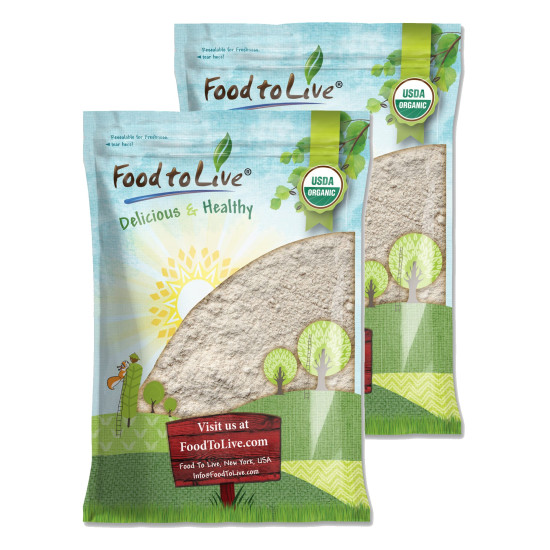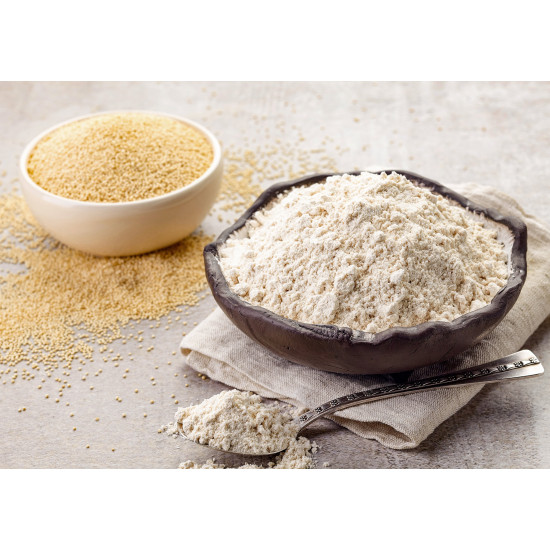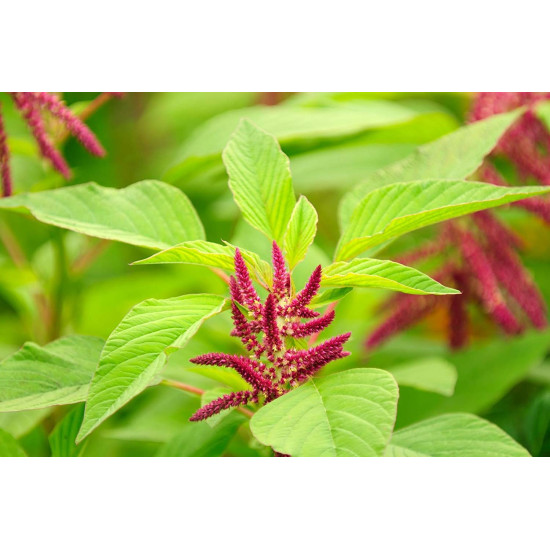Organic Whole Amaranth Grain: Nutritious Gluten-Free Ancient Grain
-550x550w.jpg)
-550x550w.jpg)

-550x550w.jpg)


-80x80w.jpg)
-80x80w.jpg)

-80x80w.jpg)


- Stock: 999
- Model: Amaranth Seeds
- SKU: 1159550172
Available Options
Amaranth grain offers several potential benefits for babies due to its nutritional profile. Here are some of the benefits associated with introducing amaranth grain to babies:
Nutrient-rich: Amaranth grain is packed with essential nutrients, including protein, dietary fiber, iron, magnesium, phosphorus, and B vitamins. These nutrients are important for the growth, development, and overall health of babies.
Protein source: Amaranth grain is considered a high-quality plant-based protein source. Protein is crucial for the development and repair of tissues, as well as supporting the healthy growth of muscles and organs in babies.
Iron content: Amaranth grain is a good source of iron, which is essential for the production of red blood cells and the transportation of oxygen throughout the body. Introducing iron-rich foods like amaranth grain can help prevent iron deficiency anemia in babies.
Fiber content: Amaranth grain contains dietary fiber, which aids in healthy digestion and prevents constipation. Introducing fiber-rich foods can promote regular bowel movements in babies.
Gluten-free option: Amaranth grain is naturally gluten-free, making it suitable for babies with gluten sensitivity or celiac disease. It can be used as an alternative grain for babies who need to avoid gluten-containing grains like wheat, barley, and rye.
Versatile and easy to prepare: Amaranth grain can be cooked and prepared in various ways, such as boiling, steaming, or blending into porridges, cereals, or purees. Its small size and soft texture make it suitable for babies transitioning to solid foods.
Organic whole amaranth grain is a nutritious and versatile gluten-free grain that has gained popularity in recent years due to its health benefits. Amaranth is an ancient grain that has been cultivated for thousands of years and was a staple food for the Aztecs and Incas.
Here are some key characteristics and information about organic whole amaranth grain:
Nutritional Value: Amaranth is rich in protein, dietary fiber, and essential nutrients. It is a complete protein, meaning it contains all the essential amino acids required by the body. It also provides minerals such as calcium, iron, magnesium, phosphorus, and potassium, as well as vitamins like vitamin C, vitamin A, and folate.
Gluten-Free: Amaranth is naturally gluten-free, making it an excellent option for individuals with gluten sensitivities or those following a gluten-free diet.
Cooking and Preparation: Whole amaranth grain has a mild, nutty flavor. It can be cooked similarly to rice or quinoa, using a 2:1 liquid-to-grain ratio. The grain can be simmered in water or broth until it becomes tender and has absorbed the liquid. It retains a slight crunch even after cooking.
Culinary Uses: Cooked amaranth can be enjoyed as a side dish, used in soups, stews, salads, or added to baked goods like bread, muffins, and cookies. It can also be popped like popcorn or ground into flour for making gluten-free baked goods.
Health Benefits: Amaranth is known for its various health benefits. It is considered a good source of antioxidants and may help reduce inflammation in the body. The high fiber content promotes digestive health and can aid in weight management. The grain also contains phytosterols, which may help lower cholesterol levels.
Buying Organic: Opting for organic whole amaranth grain ensures that it has been cultivated without the use of synthetic fertilizers, pesticides, or genetically modified organisms (GMOs). Organic farming practices prioritize environmental sustainability and promote the use of natural methods for pest and weed control.





-250x250w.jpg)
